These community courts enhance assistance provided by the Center for Justice Innovation by serving as regional resources for jurisdictions looking to implement similar community justice initiatives.
In September 2018, the Center for Justice Innovation, in partnership with the U.S. Department of Justice’s Bureau of Justice Assistance, chose community courts in Dallas, Texas; Olympia, Wash.; Orange County, Calif.; and Spokane, Wash., to serve as mentor courts for jurisdictions seeking to enhance procedural justice and promote the use of community justice and, where appropriate, alternatives to jail.
In 2024, the Center expanded its collaboration with mentor courts by launching a new program within the Bureau of Justice Assistance’s FY2023 Community Courts Initiative. A second cohort of mentor court sites, some of which overlap with the 2018 group, will work with Center technical assistance staff to provide active support to current grantee sites under the initiative. The selected mentor courts are located in Austin, Texas; Boulder, Colorado; Dallas, Texas; Orange County, Calif.; and Spokane, Wash.
Community courts emphasize alternative responses to less serious crime. People who commit lower-level offenses are sentenced to pay back the community through visible restitution projects, including removing graffiti, cleaning neighborhood parks, and helping maintain public spaces.
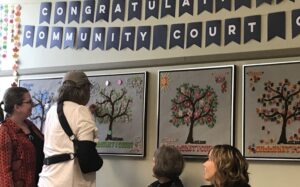
At the same time, they are linked to drug treatment, mental health services, job training, and other services to help them address the underlying issues that often fuel criminal behavior. Community courts place special emphasis on treating individual participants with dignity and respect. Research has shown that this commitment to procedural justice can reduce crime, improve compliance with court orders, and enhance public trust in the justice system—a particularly pressing need in low-income and minority neighborhoods.
The mentor community courts—which were chosen in a competitive application process—host site visits, answer questions over the phone or internet from justice reformers, and participate in conferences and workshops. Practitioners interested in taking advantage of the mentor sites’ expertise are encouraged to contact the courts directly.
The four 2018 mentor courts are:
Olympia (Wash.) Community Court
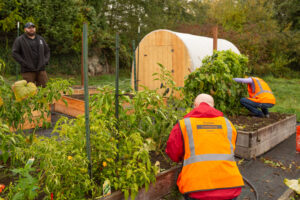
The City of Olympia’s municipal court opened its community court in 2016 to hear quality-of-life offenses committed in the downtown core. Since its launch, the community court has expanded access to services by repurposing a formerly vacant building steps away from the courthouse, and increased data collection and analysis. Early social service links, including on-site mental health and drug and alcohol evaluations, have been key components to the success of the court. Graduates are invited back to volunteer and/or provide mentor support to participants. A community court garden provides community service opportunities and provides food for participants and local food banks.
Orange County (Calif.) Community Court
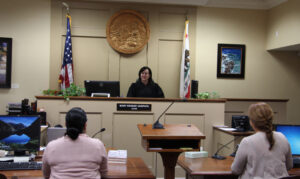
Started in 2008, the Orange County Community Court houses numerous problem-solving calendars—veterans court, drug court, mental health court, DUI court, and homeless outreach court—in one community-based location that offers participants on-site access to social services. Participants are given an opportunity to engage in individualized treatment and training while adhering to intensive supervision. The success of these programs revolves around the community service providers which are co-located at the Community Court. The Orange County Community Court employs community service as a way for participants to remain productive while searching for employment or completing educational goals.
South Dallas (Texas) Community Court

Launched in 2004, The South Dallas Community Court, housed in a neighborhood community center, hears Class C misdemeanors and serves a high-poverty neighborhood in the South Dallas area. The South Dallas Community Court has created a number of innovative programs, including the New Life Opportunity Initiative, designed to link young women engaged in prostitution to mental health and drug/alcohol treatment and housing services, and a reentry program that tackles the challenges faced by individuals returning to the community from jail. Based on the success of the project, the city expanded community court to include locations in the West Dallas, South Oak Cliff, North Dallas, and Downtown Dallas neighborhoods. The court located in Downtown Dallas operates during evening hours.
Downtown Spokane (Wash.) Community Court
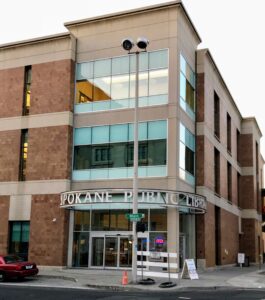
Opened in 2013, the City of Spokane’s Downtown Community Court serves the city’s central business district, operating out of a public library in an effort to better reach the low-level repeat defendants by connecting them to services in a friendly setting. Spokane Community Courts recognize that low level, non-violent offenses impact both individuals and the community at large. If not addressed, quality-of-life crimes can erode community order, lead to neighborhood decay, and create an atmosphere where more serious crime can flourish. Community Court endeavors to hold participants accountable, address factors impacting participants’ criminal behavior, provide access to local resources, address victim needs, and increase public confidence in the criminal justice system. The model proved so successful that, in 2017, with support from the Community Court Grant Program, the Municipal Court opened a second community court in Spokane’s Northeast Community Court in an existing community center.
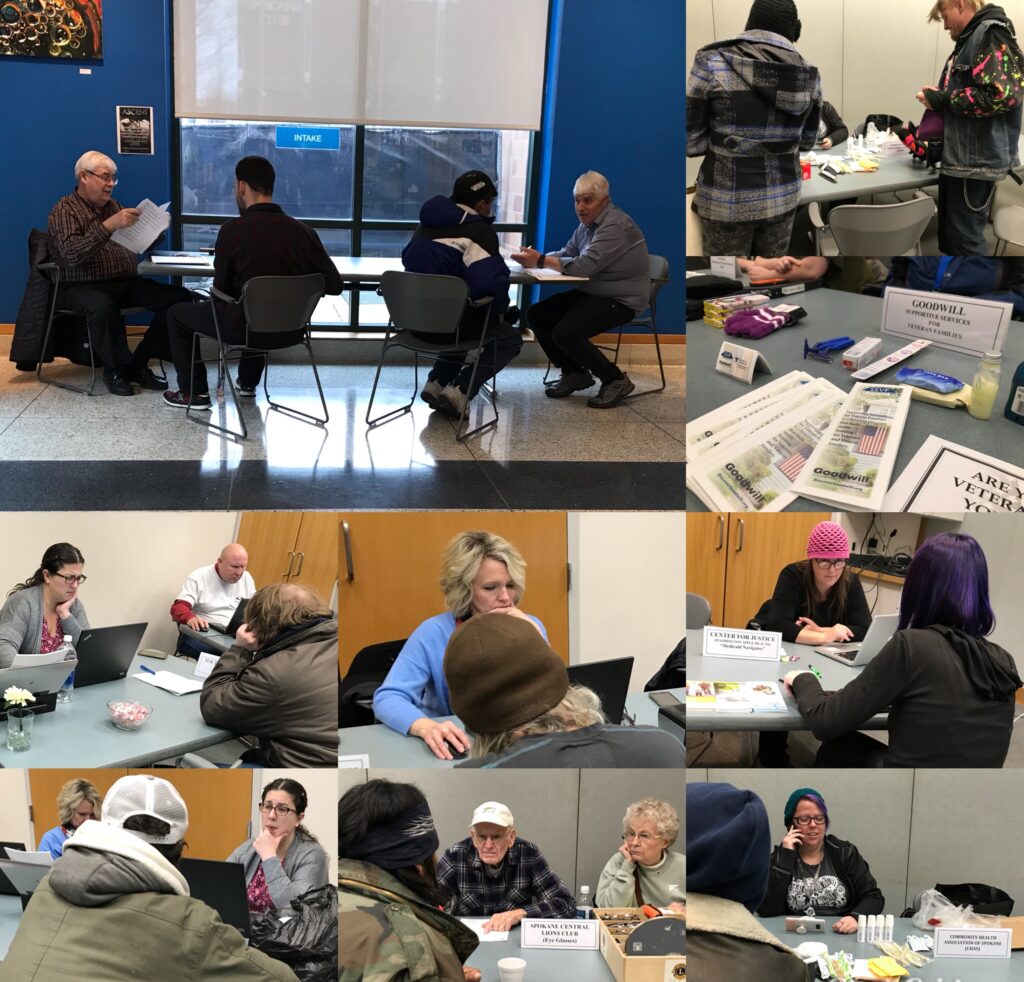
Past Mentor Community Courts
Hartford Community Court
Opened in 1998 as the third community court in the country, the Hartford Community Court is a collaboration among the State of Connecticut Judicial Branch and local authorities, including the public defender’s office and state’s attorney’s office, local service providers, and the community. The court seeks to address quality-of-life crimes by promoting responsibility through court-supervised community service and individualized social services. The Hartford Community Court is one of the only community courts in the United States with citywide jurisdiction for misdemeanor cases while also handling cases from five adjacent suburban communities. The court has an “open door policy” for members of the community to observe the court in operation and voice their ideas and concerns to court staff.
San Francisco Community Justice Center
Opened in 2009, the San Francisco Community Justice Center is a collaboration among the San Francisco Superior Court and several partner agencies. The court seeks to improve public safety and the lives of defendants and residents through cost-effective problem-solving practices that reduce incarceration and improve trust in justice. The Justice Center is one of the few community courts that hears more serious cases, including nonviolent felonies and probation revocation cases. The project is guided by an advisory board that includes all involved partner agencies, as well as members of the community. The social service center is open to all San Francisco residents.
International Mentor Community Court

Neighbourhood Justice Centre
The Center for Justice Innovation selected the Neighbourhood Justice Centre (NJC) to serve as an international mentor court for jurisdictions across the world seeking to promote the use of community justice. While the Bureau of Justice Assistance does not fund international work like the NJC, the NJC endeavors to replicate the same principles and practices of the Center’s person-first community court model.
The Neighbourhood Justice Centre opened in the Melbourne inner-city suburb of Collingwood in 2007, reflecting the values of its surrounding community and increasing public confidence in the justice system. It is the first community justice center in Australia and has been a designated International Mentor Community Court since 2017.
The NJC’s approach works: participants are 27% less likely to recidivate, and twice as likely to successfully complete Community Corrections Orders compared to the Victorian state average for medium to very high-risk case participants.
For more information about the Mentor Community Court program, or to learn more about no-cost assistance in launching community courts, enhancing procedural justice, or promoting alternatives to incarceration, please contact our Expert Assistance team.